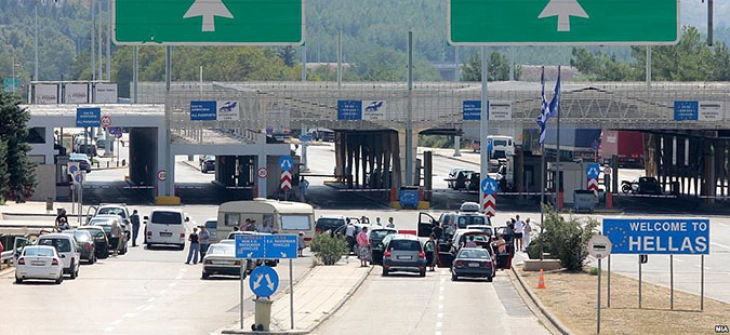Greece extends COVID-19 travel rules for a week

Athens, 12 August 2021 (MIA) – Greece has extended the COVID-19 entry rules for another week, which include travelers to provide mandatory vaccination certificate, negative PCR test results or proof that they’ve previously had COVID-19, and to fill out online the PLF (Passenger Locator Form), MIA’s Athens correspondent reported on Thursday.
In line with the new ministerial decision, which entered into effect as of August 12, the rules will remain in force until August 19, 2021.
North Macedonia remains among the countries exempted from Greece’s entry ban for third-country nationals. The border crossings, including Evzoni (Bogorodica), Niki (Medzhitlija) and Dojran, between North Macedonia and Greece are open for passengers 24 hours a day.
Vaccinated travelers have to wait 14 days after being administered the second vaccine dose in order to enter Greece. The vaccination certificate must be issued either in Greek, English, French, German, Italian, Spanish or Russian by a public institution, and contain information such as: full name (as stated in passport), type of vaccine and number of doses, as well as dates when they were administered.
Alternatively, those presenting negative PCR test results need to have the test done 72 hours prior to entering Greece, whereas those presenting negative rapid test results need to have the test done 48 hours prior to entering Greece. In both cases, tests need to be done at a pre-approved private or national lab. Results must be either in Greek, English, French, German, Italian, Spanish or Russian, and also contain the passenger’s full name as stated in the passport.
In addition, passengers can also enter Greece by presenting proof that they’ve previously had COVID-19, including PCR or antibody test results, with the document issued 30 days after the first positive test results and valid up to 180 days. Tests need to be done at a pre-approved private or national labs and results must also be either in Greek, English, French, German, Italian, Spanish or Russian.
The European digital COVID-19 certificate is yet another alternative option to enter Greece.
The travel rules apply to persons over 12 years of age.
Moreover, prior to the visit, travelers must fill out online the PLF (Passenger Locator Form), available at www.travel.gov.gr. They will receive confirmation containing a QR code, which is considered a necessary document for entering the country.
All arrivals can be subject to random rapid testing when entering Greece. If they test positive they must remain in mandatory quarantine for 10 days, unless they have been fully vaccinated at least 14 days prior to arrival, in which case they will be put in isolation for 7 days.
On the last day of the isolation period, passengers must undergo another PCR test.
The latest ministerial decision includes changes in regard to travelers who have had close contact with a person infected with COVID-19. They can return to their country the same or following day, if they test negative twice in 24 hours and wear N95 face masks while travelling.
In case they stay in Greece, but are not vaccinated, not have had COVID-19 in the past six months, they must stay isolated for 14 days, counting from the last time they were in contact with the infected person, or for 7 days and undergo another PCR test on the last day.
If they are vaccinated or have had COVID-19 recently, they won’t be put in isolation, but must undergo mandatory PCR test upon entry into Greece.
Fines for breaking the measures included in the ministerial decision stand between EUR 500 and 5,000.
Aside from North Macedonia, the following countries are also exempted from the entry ban for third-country nationals: Azerbaijan, Australia, Albania, Bosnia and Herzegovina, Armenia, the United Arab Emirates, the United States, the United Kingdom, Japan, Jordan, Israel, Canada, Qatar, China, Kosovo, Kuwait, Belarus, Lebanon, Montenegro, Moldova, Bahrein, Brunei, New Zealand, South Korea, Ukraine, Russia, Saudi Arabia, Serbia, Singapore, Turkey, as well as San Marino, Andorra, Vatican and Monaco.
According to the decision, tourists are required during their stay to abide by measures and restrictions enforced in Greece.







